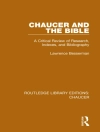In ‘The Autocrat of the Breakfast-Table, ‘ Oliver Wendell Holmes presents a delightful series of essays that unfold in the conversational setting of a breakfast table, where the eponymous Autocrat shares his reflections and insights on a wide range of topics, from philosophy to social issues. The literary style is characterized by its conversational tone, blending humor with earnest observation, which invites readers into an intimate dialogue. Holmes weaves a rich tapestry of 19th-century American life, infusing the narrative with wit and erudition, making it a notable precursor to the literary movement of American realism. Holmes, a prominent physician and member of the Boston Brahmins, was deeply immersed in the intellectual currents of his time, influenced by transcendentalism and the burgeoning American literary identity. His diverse background—as a poet, essayist, and medical practitioner—provided Holmes with a unique perspective on the complexities of human experience, which he adeptly navigates in this work. His personal explorations of life and society resonate with authenticity and intellectual curiosity. Recommended for readers who appreciate sharp wit and contemplative essays, ‘The Autocrat of the Breakfast-Table’ is not just a feast for the mind but also a rich exploration of the human condition. Holmes invites you to sit at his table, where every conversation ignites thoughtful reflection, making it an enduring classic worthy of attention in the canon of American literature.
Про автора
Oliver Wendell Holmes Sr. (1809–1894) was an American polymath based in Boston, a member of the Fireside Poets. Renowned for his wit and verbal creativity, Holmes was an influential writer, physician, and an esteemed professor at Harvard Medical School. With a literary career that traversed various genres, Holmes’ most enduring work is ‘The Autocrat of the Breakfast-Table’ (1858), which deftly combines essays, poetry, and fictional elements. Written as a series of table talks, this collection presents the opinions and philosophies of its ‘autocrat’ narrator, delivering them with a conversational eloquence that captures the intimacy and charm of tableside discourse. It highlights Holmes’ distinctive narrative style, characterized by urbane language, humor, and an avuncular tone. Besides his contributions to American literature, Holmes is also noted for coining the term ‘anesthesia’ and for his role in the advancement of public health. Thus, his legacy encompasses significant contributions to both literature and medicine, reflecting a life that bridged the arts and sciences. His prose remains a quintessential reflection of the 19th-century American intellect and wit.












